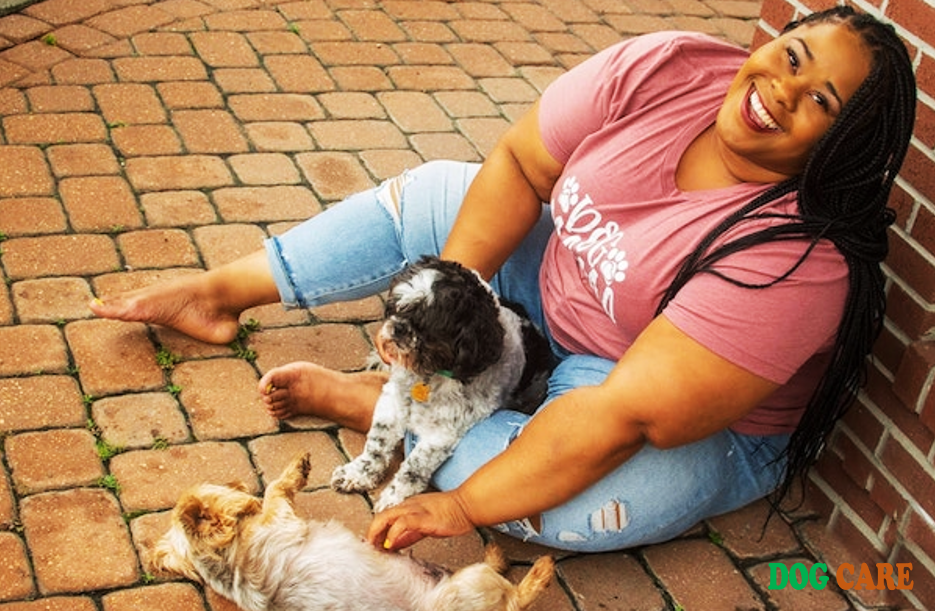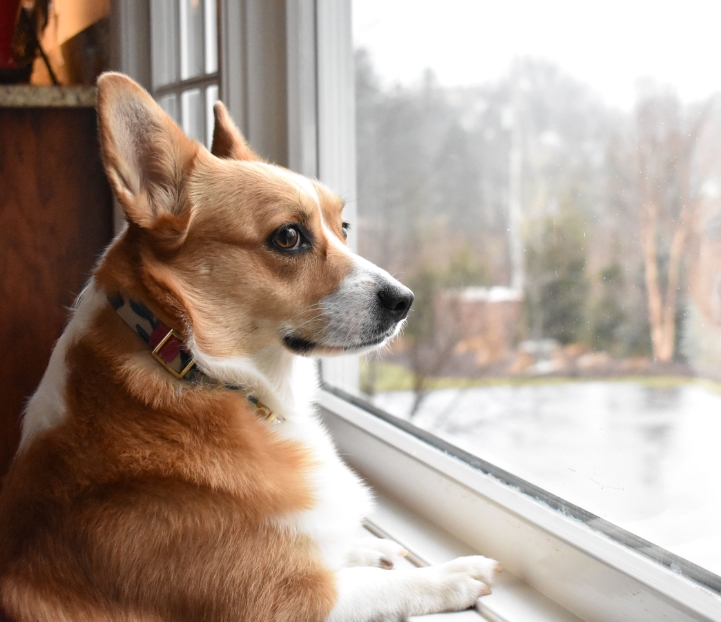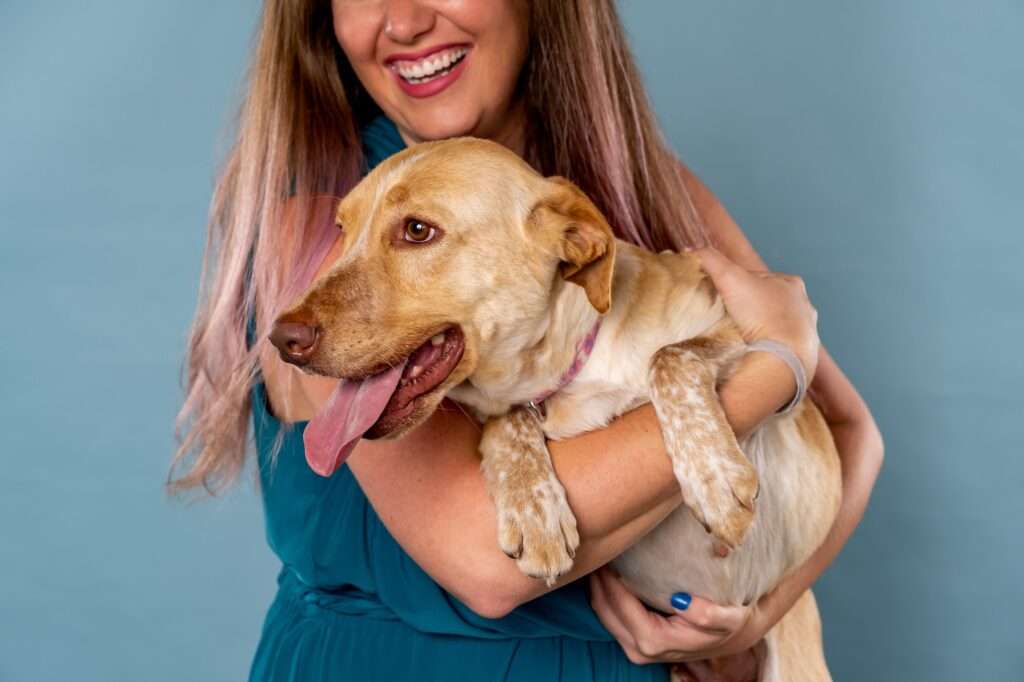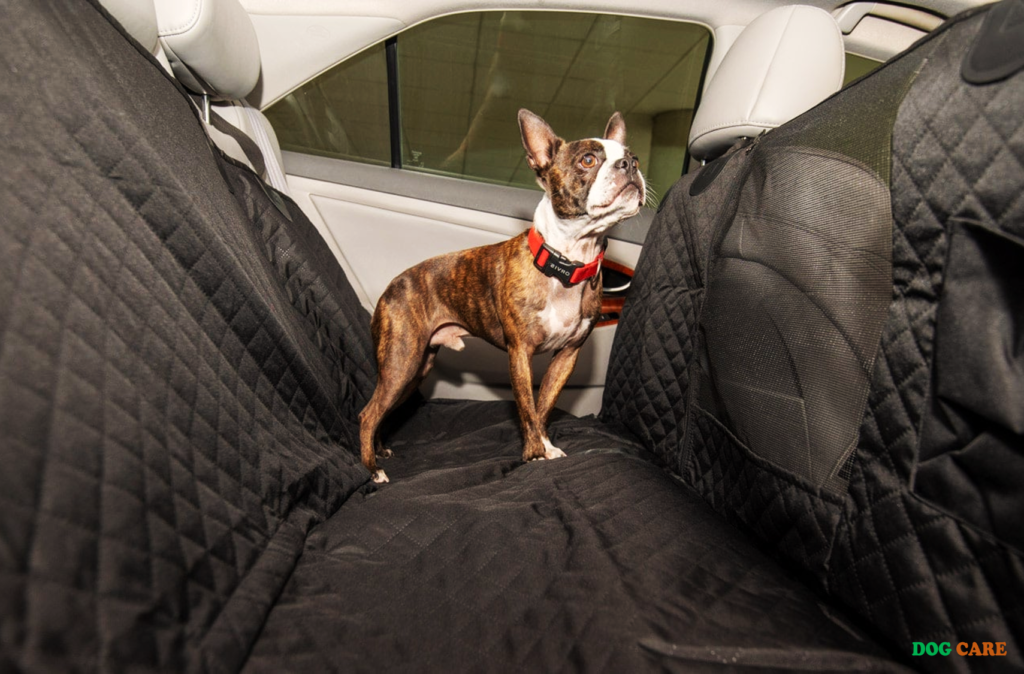Does Doggy Day Care Ease Separation Anxiety : Yes, doggy day care can help with separation anxiety in dogs by providing socialization and reducing stress from being alone. Doggy day care is a beneficial option for dog owners who struggle with leaving their furry friends alone due to separation anxiety.
Separation anxiety is a common issue in dogs, causing them to exhibit destructive behavior or excessive barking when left alone. By enrolling a dog in a day care program, they are provided with socialization opportunities. Interacting with other dogs and humans can help reduce anxiety and promote better behavior.
Additionally, day care facilities usually have trained staff who provide attention and mental stimulation, keeping the dogs occupied throughout the day. This can alleviate stress and loneliness, enhancing the overall well-being of the dogs. Doggy day care provides a safe and engaging environment for dogs, helping to address separation anxiety.

Understanding Separation Anxiety In Dogs
Doggy day care can be beneficial in helping dogs with separation anxiety. By providing a social environment and regular exercise, it can reduce stress levels and provide the necessary stimulation to keep dogs occupied during their owners’ absence.
Dogs are social animals that thrive on human companionship. However, some dogs experience a condition called separation anxiety when left alone. Separation anxiety can lead to destructive behaviors, excessive barking, and other problems. In this section, we will delve into the causes, symptoms, and impact of separation anxiety on dogs.
Causes Of Separation Anxiety
Separation anxiety can stem from various factors including:
- Changes in routine: Dogs are creatures of habit, and any sudden changes in their daily routine, such as a schedule alteration or a change in their primary caregiver, can trigger separation anxiety.
- Past experiences: Dogs that have had traumatic experiences, such as being abandoned or repeatedly being left alone for long periods, are more prone to developing separation anxiety.
- Lack of socialization: Dogs that have not been adequately exposed to various environments, people, and other dogs during their critical socialization period may be more susceptible to developing separation anxiety.
Symptoms Of Separation Anxiety
Recognizing the signs of separation anxiety is crucial for early intervention. Common symptoms of separation anxiety in dogs can include:
- Excessive barking, howling, or whining when left alone.
- Destructive behaviors, such as chewing furniture or scratching doors, in an attempt to escape or relieve stress.
- House soiling, even in dogs that are otherwise house trained.
- Restlessness and pacing in anticipation of the owner’s return.
- Attempts to escape from the confinement area, leading to injuries.
Impact Of Separation Anxiety On Dogs
Separation anxiety can greatly affect a dog’s well-being and quality of life. The constant fear and stress experienced by dogs with separation anxiety can lead to various physical and emotional issues, including:
| Physical Impact | Emotional Impact |
|---|---|
| Loss of appetite or overeating | Depression or excessive attachment to the owner |
| Weight loss or gain | Inability to relax or sleep |
| Digestive problems | Frequent and excessive vocalization |
| Increased heart rate | Aggression towards other animals or people |
It is important to address separation anxiety in dogs to prevent further distress and improve their overall well-being.
Exploring Doggy Day Care
Doggy day care can be an effective solution for dogs with separation anxiety. By providing a stimulating and social environment, it helps to alleviate their anxiety and provides them with the companionship they need while their owners are away.
Exploring Doggy Day Care When it comes to tackling separation anxiety in dogs, one option that dog owners often consider is doggy day care. Doggy day care facilities provide a safe and stimulating environment for dogs during the day while their owners are at work or away. In this section, we will delve into what doggy day care is all about, the benefits it offers, and the different types of facilities available.
What Is Doggy Day Care?
Doggy day care is a service that provides care and supervision for dogs during the daytime. It is designed to give dogs the opportunity to socialize, exercise, and engage in activities while their owners are away. Unlike traditional boarding facilities where dogs are kept in kennels, doggy day care facilities offer an open and interactive environment where dogs can freely roam and play with other dogs.
Benefits Of Doggy Day Care
Doggy day care has several benefits that can help alleviate separation anxiety in dogs and provide them with a positive outlet for their energy. Some of the key benefits of doggy day care include:
- Socialization: Dogs are pack animals that thrive on social interaction. By exposing them to other dogs and humans in a controlled environment, doggy day care helps improve their social skills and reduces anxiety when faced with new situations.
- Exercise: Dogs need regular exercise to stay healthy and balanced. Doggy day care facilities provide ample opportunities for dogs to run, play, and engage in physical activities, ensuring they have an outlet to release their energy.
- Mental Stimulation: Boredom and lack of mental stimulation can contribute to separation anxiety in dogs. Doggy day care facilities offer various interactive toys, puzzles, and activities to keep dogs mentally engaged and prevent them from becoming anxious or destructive.
- Supervision and Safety: At doggy day care, dogs are under constant supervision by trained staff who are knowledgeable about canine behavior. This ensures their safety and helps owners have peace of mind knowing their furry friends are well looked after.
Types Of Doggy Day Care Facilities
There are different types of doggy day care facilities that cater to the specific needs and preferences of dog owners. These include:
- Indoor Play Areas: Some doggy day care facilities have indoor play areas equipped with obstacles, toys, and play structures. These facilities are ideal for dogs that prefer a climate-controlled environment or during inclement weather.
- Outdoor Play Areas: Other facilities offer outdoor play areas where dogs can enjoy fresh air, sunshine, and access to grassy fields. These facilities are great for dogs that love exploring outdoor environments.
- Specialized Care: Some doggy day care facilities provide specialized care for certain breeds or sizes of dogs. This can include separate play areas for small dogs, puppies, or senior dogs, ensuring each dog is matched with appropriate playmates.
- Training and Enrichment: Certain facilities offer additional services such as training sessions, obedience classes, or enrichment programs. These services can help address specific behavioral issues and further stimulate dogs’ minds.
In conclusion, doggy day care is a beneficial option for dogs suffering from separation anxiety. It provides them with socialization, exercise, and mental stimulation, all of which contribute to their overall well-being. Understanding the different types of doggy day care facilities available allows owners to choose the best option that suits their dog’s needs and preferences.
The Role Of Doggy Day Care In Easing Separation Anxiety
Separation anxiety is a common issue that many dog owners face. Dogs, being social animals, can often experience stress and anxiety when left alone for long periods. This can lead to destructive behavior, excessive barking, and even health problems. However, one effective way to help alleviate separation anxiety in dogs is through doggy day care. Doggy day care provides a safe and stimulating environment where dogs can interact and socialize with other dogs, reducing their anxiety and giving them a positive outlet for their energy.
Socialization And Interaction
Doggy day care plays a crucial role in helping dogs with separation anxiety by providing them with ample opportunities for socialization and interaction. Dogs are naturally social creatures, and being around other dogs in a supervised setting can help them feel more secure and less anxious when their owners are not around. Interacting with other dogs can enhance their social skills, build confidence, and reduce fear or anxious behavior.
Reduction Of Anxiety
Another way doggy day care helps with separation anxiety is by actively reducing anxiety levels in dogs. When dogs are surrounded by other dogs in a stimulating and structured environment, they are less likely to focus on their anxiety or engage in destructive behaviors. Doggy day care provides plenty of physical activity, mental stimulation, and playtime, which can help tire them out, lower their stress levels, and promote a sense of calmness. Additionally, the presence of experienced staff members who understand dog behavior and recognize signs of anxiety can provide reassurance and comfort to anxious dogs.
Establishing A Routine
Establishing a routine is essential for dogs with separation anxiety, and doggy day care can play a vital role in accomplishing this. Regularly attending doggy day care helps create a consistent schedule for dogs, making their daily routine more predictable. This can give dogs a sense of security and stability, reducing anxiety associated with changes in their environment or daily activities. By following a regular routine that includes interactions with other dogs, playtime, and rest periods, dogs can better adjust to their owner’s absence and feel more relaxed when left alone.
Overall, doggy day care provides numerous benefits for dogs with separation anxiety. Through socialization, anxiety reduction, and establishing a routine, doggy day care offers a supportive environment that can help dogs feel more comfortable and confident when apart from their owners. If your furry friend struggles with separation anxiety, enrolling them in a reputable doggy day care can be a valuable tool in addressing their anxiety and ensuring their well-being.
Selecting The Right Doggy Day Care
When it comes to dealing with separation anxiety in dogs, doggy day care can be an effective solution. However, not all doggy day care facilities are created equal. It is crucial to select a daycare that meets your dog’s needs and provides a safe and stimulating environment. To help you make an informed decision, here are three key factors to consider when selecting the right doggy day care: researching and visiting facilities, checking reviews and references, and ensuring proper staff qualifications.
Researching And Visiting Facilities
Before entrusting your beloved furry friend to a doggy day care, it is essential to conduct thorough research and visit the facilities in person. This will allow you to assess the environment and ensure that it is clean, well-maintained, and suitable for your dog’s needs. During your visit, pay attention to the following:
- The size and layout of the facility, ensuring there is ample space for dogs to play and rest comfortably.
- The presence of separate play areas for different-sized dogs to enhance safety and prevent any potential incidents.
- The availability of shaded outdoor spaces and appropriate play equipment to keep your dog engaged and entertained.
- The overall cleanliness and hygiene standards, including proper waste disposal and any potential hazards.
Checking Reviews And References
One of the best ways to gauge the quality of a doggy day care facility is by checking reviews and references from other pet owners. By reading firsthand experiences, you can gain valuable insights into the level of care and service provided. Here are a few tips to consider when evaluating reviews and references:
- Look for consistent positive feedback, indicating high-quality care and customer satisfaction.
- Consider both online reviews and personal recommendations from trusted sources.
- Prioritize reviews that specifically mention the facility’s approach to handling separation anxiety and creating a supportive environment for anxious dogs.
Ensuring Proper Staff Qualifications
The qualifications and expertise of the staff at a doggy day care are crucial for ensuring the well-being of your furry friend. When evaluating a facility, be sure to inquire about the following staff qualifications:
- Training and experience in animal behavior and psychology, especially in dealing with separation anxiety.
- Knowledge of first aid and CPR for dogs, as emergencies can happen, and quick action is essential.
- The staff-to-dog ratio, ensuring that there are enough trained professionals to monitor and interact with the dogs.
- Ongoing education and professional development to stay updated with the latest practices in dog care and handling separation anxiety.
By thoroughly researching and visiting facilities, checking reviews and references, and ensuring proper staff qualifications, you can select a doggy day care that will help your furry friend overcome separation anxiety and thrive in a safe and supportive environment. Remember, finding the right doggy day care is a crucial step toward your dog’s emotional well-being and your peace of mind.
Preparing Your Dog For Doggy Day Care
Doggy day care can be a great solution for dogs with separation anxiety. It provides them with much-needed socialization and mental stimulation, helping to alleviate the stress and anxiety they feel when left alone. However, to ensure a smooth transition, it’s important to prepare your dog for doggy day care. This involves gradual exposure to new environments, positive reinforcement training, introducing your dog to other dogs, and addressing necessary health and vaccination requirements.
Gradual Exposure To New Environments
When preparing your dog for doggy day care, it’s essential to gradually expose them to new environments. This helps them become more comfortable in unfamiliar surroundings. Start by taking your dog on short visits to places like parks or pet-friendly cafes. Gradually increase the duration of these outings, exposing them to different sounds, smells, and sights. This will help build their confidence and reduce anxiety when they eventually go to doggy day care.
Positive Reinforcement Training
Positive reinforcement is an effective training technique that can help prepare your dog for doggy day care. Use rewards such as treats, praise, or playtime to reinforce good behavior. For example, when your dog remains calm and relaxed during their visits to new environments, reward them with their favorite treat. This will create a positive association and help them understand that being in new places is a pleasant experience.
Introducing Your Dog To Other Dogs
Socialization with other dogs is a crucial aspect of preparing your dog for doggy day care. Gradually introduce your dog to other dogs in controlled settings, such as on-leash walks or supervised playdates. Observe their behavior and ensure positive interactions. Encourage gentle play, sniffing, and appropriate body language. This will help your dog develop good social skills and become more comfortable around unfamiliar dogs at doggy day care.
Addressing Health And Vaccination Requirements
Prior to enrolling your dog in doggy day care, it’s important to address any health and vaccination requirements. Most doggy day care facilities require dogs to be up to date on vaccinations to prevent the spread of diseases. Schedule a vet appointment to ensure your dog is fully vaccinated and free from any illnesses that could affect other dogs. This step is crucial to maintain a healthy and safe environment for all dogs at the facility.
Monitoring Your Dog’s Progress In Doggy Day Care
When it comes to dealing with separation anxiety in dogs, doggy day care can be an effective solution. But how can you ensure that your furry friend is benefitting from their time spent in daycare? Monitoring your dog’s progress is key. By paying attention to certain factors, you can gain valuable insights into how your dog is adapting to the environment and if their separation anxiety is improving. In this post, we will discuss three important aspects to consider when monitoring your dog’s progress in doggy day care: communication and updates, observing behavior changes, and feedback from day care staff.
Communication And Updates
Staying informed about your dog’s experiences at daycare is crucial. Communication and updates from the daycare facility give you the opportunity to stay connected with your dog’s day-to-day activities. Regular updates can help ease your worries and ensure that your dog is receiving the care and attention they need. Whether it’s through email, phone calls, or an online platform, make sure to establish a system of communication with the daycare staff. Ask about their policies for sharing information and request updates on your dog’s behavior, interactions with other dogs, and overall progress. Having open lines of communication with the daycare staff allows you to be an active participant in your dog’s journey towards overcoming separation anxiety.
Observing Behavior Changes
One of the benefits of sending your dog to daycare is the opportunity to observe their behavior in a social setting. Pay close attention to any behavior changes in your dog both during and after their daycare visits. Notice if they seem more relaxed and less anxious upon returning home. Are they more confident in interacting with other dogs? Do they show signs of increased independence? These behavior changes can indicate progress in overcoming separation anxiety. Observe how your dog interacts with staff members and other dogs, take note of any positive changes, and discuss them with the daycare staff. Regularly assessing your dog’s behavior will help you gauge the effectiveness of doggy daycare in addressing their separation anxiety.
Feedback From Day Care Staff
The daycare staff play a crucial role in monitoring your dog’s progress. They are the ones who spend time with your dog, interact with them, and witness their behaviors firsthand. Take advantage of their insights and expertise by seeking feedback directly from the staff. Ask them about any noticeable changes in your dog’s behavior, their level of comfort in the daycare environment, and their interactions with other dogs. Their observations can provide you with valuable information and reassurance that your dog is making strides in combating separation anxiety. Regularly communicating with the daycare staff and discussing their feedback can help you make informed decisions regarding your dog’s care and wellbeing.
Alternative Solutions For Separation Anxiety
Separation anxiety can be a distressing experience for both dogs and their owners. However, the good news is that there are alternative solutions available to help alleviate this common problem. By implementing a combination of behavioral training, environmental enrichment, as well as natural supplements and medications, you can provide your furry friend with the support they need to cope with being apart from you. In this article, we will explore each of these solutions in detail, giving you a comprehensive guide to help your dog overcome separation anxiety.
Behavioral Training
Behavioral training is an essential tool in helping dogs overcome separation anxiety. By teaching your dog new behaviors and reinforcing positive actions, you can gradually reduce their anxiety levels when left alone. One effective training technique that experts recommend is desensitization. This involves gradually exposing your dog to brief periods of separation and gradually increasing the duration over time. By helping your dog associate positive experiences with being alone, you can help them build confidence and reduce anxiety.
Environmental Enrichment
Creating a stimulating environment can make a significant difference in helping your dog manage separation anxiety. Providing your dog with interactive toys, chew toys, or puzzle toys can help keep them engaged and distracted while you are away. Additionally, leaving the TV or radio on can provide a sense of companionship for your dog. Creating a safe and comfortable space where your dog feels secure, such as a designated area or a crate, can also help alleviate their anxiety.
Natural Supplements And Medications
In some cases, natural supplements and medications can provide additional support in managing separation anxiety. Several natural supplements, such as chamomile or lavender, have calming properties that can help relax dogs in stressful situations. It’s always important to consult with your veterinarian before considering any medications or supplements, as they can provide guidance tailored to your dog’s specific needs. They can recommend safe and effective options, such as anti-anxiety medications or pheromone diffusers, to help your dog feel more at ease.
By incorporating behavioral training, environmental enrichment, and potentially natural supplements or medications, you can give your dog the best chance of overcoming separation anxiety. Remember, every dog is unique, so it may take time and patience to find the right combination of solutions that works best for your furry friend. The most important thing is to provide love, understanding, and support throughout the process, helping your dog feel more confident and secure even when you’re not around.
Case Studies: Success Stories Of Doggy Day Care
When it comes to addressing separation anxiety in dogs, doggy day care has emerged as an effective solution. Through professional care, socialization, and engagement, doggy day care provides a safe and stimulating environment for dogs, helping them overcome their anxiety and thrive. In this section, we will delve into the success stories of three dogs who have undergone a transformative journey with the help of doggy day care.
Case Study 1: Jake’s Transformation
For Jake, a three-year-old Australian Shepherd, separation anxiety was a significant challenge that disrupted his daily life. His owners noticed excessive barking and destructive behavior whenever they left him alone. Seeking a solution, they turned to doggy day care, and the results were remarkable.
Initially, Jake was hesitant when introduced to the new environment. However, with the guidance of experienced and caring staff, he gradually gained confidence. Socializing with other friendly dogs helped Jake form new bonds and overcome his fear of being alone. The structured routine at the facility also provided Jake with a sense of security.
After weeks of attending doggy day care, Jake’s separation anxiety reduced significantly. His owners noticed a positive change in his behavior at home as well. Jake became more relaxed and comfortable when they left for work, no longer displaying destructive tendencies. Doggy day care had not only provided Jake a place to socialize, but it helped him develop coping mechanisms, ultimately improving his overall well-being.
Case Study 2: Bella’s Confidence Boost
Bella, a two-year-old Labrador Retriever, struggled with shyness and anxiety when separated from her owners. She would often hide or tremble whenever they prepared to leave the house. Seeking a solution, Bella’s owners enrolled her in a reputable doggy day care facility.
At first, Bella was hesitant to interact with the other dogs. However, the patient and caring staff at the facility provided her with gentle encouragement and support. Over time, Bella began to open up and embrace new experiences. The structured playtime and positive reinforcement helped boost her confidence.
Within a few weeks, Bella’s anxiety decreased significantly. Her owners noticed that she no longer exhibited signs of distress when left alone. Instead, Bella became more independent and self-assured. Doggy day care had not only helped Bella overcome her separation anxiety but also provided her with the tools to thrive socially.
Case Study 3: Max’s Socialization Journey
Max, a one-year-old Golden Retriever, struggled with a lack of socialization. Due to limited exposure to other dogs and environments, Max exhibited fear and anxiety around unfamiliar settings. Concerned for Max’s well-being, his owners decided to enroll him in doggy day care.
Upon starting his journey at the facility, Max was introduced gradually to different playgroups and carefully monitored by the dedicated staff. They ensured that Max felt safe and supported as he interacted with other dogs. Through positive reinforcement and exposure to various stimuli, Max’s confidence grew.
After several months of attending doggy day care, Max’s socialization improved significantly. His owners observed a remarkable change in his behavior during outings and encounters with other dogs. Max no longer displayed signs of fear or anxiety, enjoying and embracing new experiences. Doggy day care had provided Max with the much-needed socialization that contributed to his overall development and happiness.

Frequently Asked Questions On Does Doggy Day Care Help With Separation Anxiety
How Does Doggy Day Care Help With Separation Anxiety?
Doggy day care provides a stimulating environment for dogs, helping to alleviate separation anxiety. Dogs receive socialization, mental stimulation, and plenty of exercise, reducing their anxiety when left alone. This supervised and interactive setting helps to distract and entertain dogs, preventing them from focusing on their owner’s absence.
Is Doggy Day Care Suitable For All Dogs With Separation Anxiety?
Doggy day care can be beneficial for most dogs with separation anxiety. However, it is essential to consider each dog’s temperament and individual needs. Some dogs may require additional training or behavior modification before attending day care. Consulting with a professional trainer or behaviorist can help determine if this option is suitable for your specific dog.
How Often Should I Take My Dog To Doggy Day Care For Separation Anxiety?
The frequency of doggy day care visits for separation anxiety will depend on the severity of the dog’s anxiety and their individual needs. Initially, it may be helpful to start with a few days per week to provide consistency and gradually decrease anxiety levels.
Consulting with a professional trainer or behaviorist can help establish an appropriate schedule for your dog.
Can Doggy Day Care Completely Eliminate Separation Anxiety?
While doggy day care can significantly reduce separation anxiety, it may not completely eliminate it in all cases. Some dogs may require additional training or behavior modification to overcome their anxiety fully. Combining day care with behavior modification techniques, such as desensitization and counterconditioning, can help achieve more long-term results for dogs with severe separation anxiety.
Conclusion
Doggy day care can be an effective method to help alleviate separation anxiety in dogs. By providing a stimulating and social environment, it helps to reduce their feelings of isolation and distress when separated from their owners. Regular interaction with other dogs and professional staff can promote emotional well-being, boost confidence, and improve behavior.
If your dog struggles with separation anxiety, consider giving doggy day care a try as part of their treatment plan.


